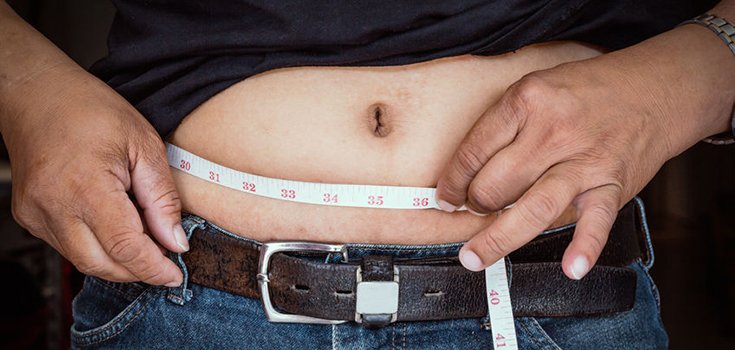How Anxiety, Low Self-Worth may Spark Countless Individuals to Overeat

Two studies confirm that stress is a major underlying factor in the obesity epidemic among the poor. One from Scotland, published in the journal Appetite, documents the link between overeating and the stress that accompanies income inequality. The other, published in Psychological Science, attempts to explain the link between being raised in poverty and a proclivity to eat in the absence of hunger.
Poverty looks much different in developed countries than in undeveloped and developing countries. On the other side of the world, poverty-stricken children have sunken eyes, and bloated bellies protrude over scrawny sickly legs.
In countries like Africa, bloated bellies come from parasitic worms living in children’s intestines. These parasites use what little food a child is able to scrape together. In places like the United States and the United Kingdom, swollen bellies are often a sign of poverty, but they are caused by obesity rather than parasites.
Obesity has become a massive epidemic among low-income families. Policymakers have consistently tried to tackle the problem by focusing on issues like the cost and availability of healthy foods – and that’s a good thing. However, researchers have increasingly been focusing attention on the emotional needs of people living in poverty, which is an unrelentingly stressful way of life.
The First Study – Environmental Influence on Eating
For the first study researchers recruited 31 women of normal weight to participate in what was they were told was a consumer research study. Each woman received a bowl of chocolate chip cookies and a bowl of pretzels and was told to sample and rate each snack. Then the women were told they were free to eat the leftovers while they waited for the next part of the study to begin.
The participants were then asked to complete a survey about their childhood before the age of 12 and rate their agreement with the following statements:
- My family had enough money for things growing up.”
- “I grew up in a relatively wealthy neighborhood.”
- “I felt relatively wealthy compared to others my age.”
The researchers tallied up their answers and calculated how much each participant had eaten based on the food that remained in the bowls. Among the women who reported feeling hungry, the researchers found no difference in calories consumed between those who grew up in poorer environments and those who were fairly wealthy growing up.
But childhood environment did have an impact on how much the women ate when they weren’t actually hungry. Women who came from more impoverished backgrounds ate more of the cookies and pretzels and consumed more calories overall than those who said they came from wealthier homes.
The Second Study – Impact of Low-Socioeconomic Status
For the second study, Texas Christian University psychologist Sarah Hill and colleagues conducted 3 experiments in which they either measured or manipulated the energy needs of a group of students and then gave them snacks to eat. One group of 60 female undergraduates answered a questionnaire about their family’s socioeconomic status during both childhood and currently.
Half of the students drank a 12 oz. can of Sprite to satisfy their immediate energy need while the other half consumed an equal amount of mineral water. Ten minutes later all of the participants were asked to eat and evaluate cookies.
Students who grew up in wealthier households ate fewer cookies if they had just consumed Sprite, while students who were raised in poorer families ate just as many cookies whether they had consumed the soft drink or the water.
“Among individuals who grew up in high-socioeconomic status environments, food intake varied according to immediate physiological energy need,” the researchers wrote.
“These individuals consumed more calories when their current energy need was high than when it was low.
For individuals who grew up in low-socioeconomic status environments, however, the relationship between physiological need and food intake was decoupled. Their food intake appeared to be guided primarily by opportunity.”
The researchers concluded:
“Feeling poor relative [to] others had a clear effect on calorie consumption” and the overeating was due to “increased anxiety – particularly anxiety due to anticipated negative social evaluation.”
Sadly, it appears the stress came not from worrying about where their next meal or snack would come from, but rather from feeling left-out and believing wealthier people looked down on them.
Unfortunately, just because affordable healthy food is available in poor areas, that doesn’t necessarily mean people of low socioeconomic status will eat it. This is not because of some personality flaw, but because they may lack nutritional information and literally don’t know what foods are healthy or why. Many of these individuals grew up eating whatever cheap food was available, much of it full of sugar, calories, and fat, and may not be accustomed to eating fruits and vegetables.
Sources:
